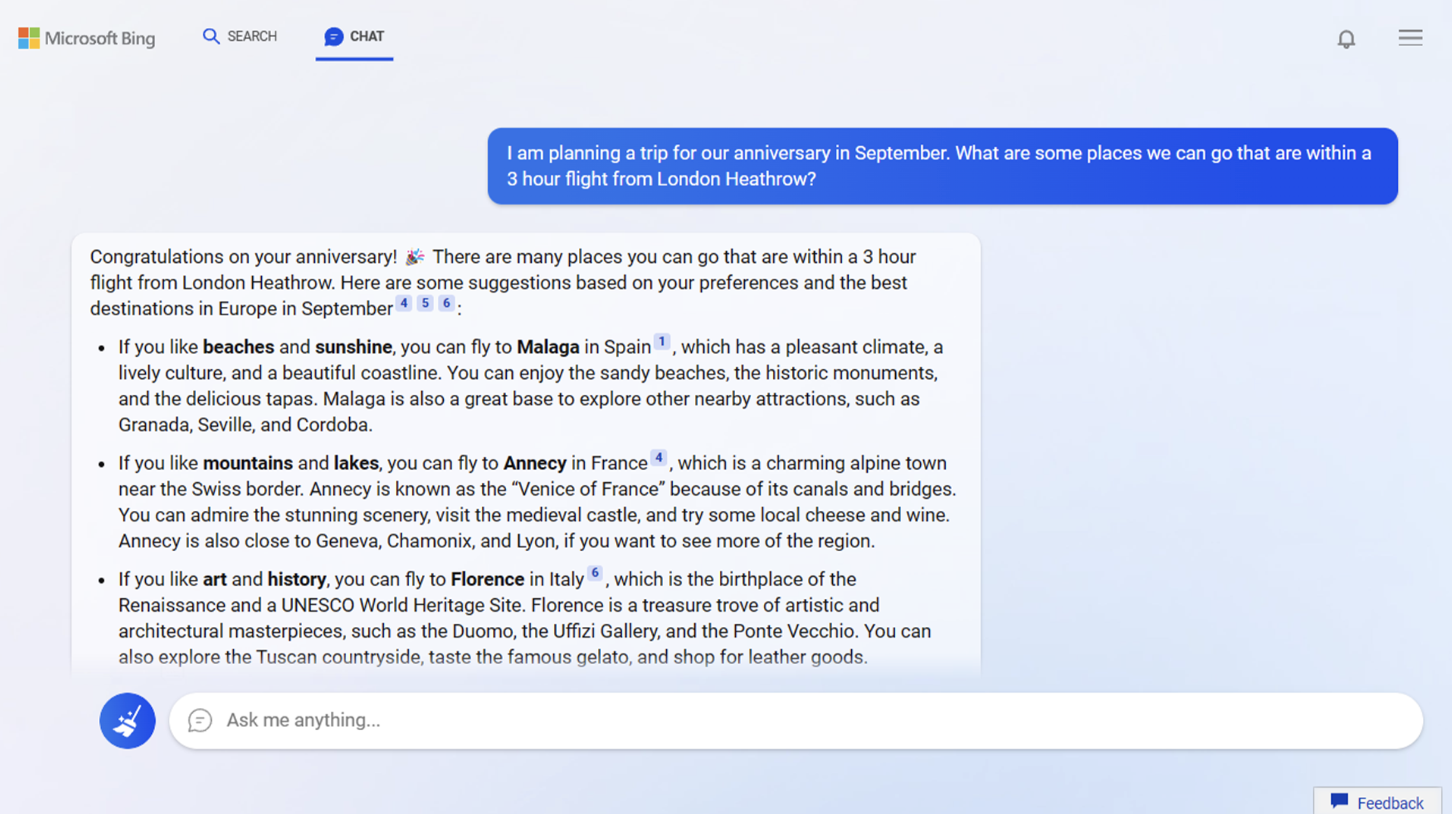Microsoft have released an early preview of AI-powered search integrated into Bing.
Available via Bing.com, the new tool is the first sign of Microsoft’s multibillion dollar investment in artificial intelligence company OpenAI – and uses the same technology first seen in the open preview of ChatGPT 3.5. AI ‘Copilot’ now not only delivers search results, but can generates longer text-based responses to questions, and form responses to more abstract queries that don’t have an obvious web destination.
The move comes just 48 hours after Google’s rival AI chatbot, Bard, generated a factual error in a promotional video, wiping an estimated $100bn off Google’s total market value.
ChatGPT’s ‘chat prompt’ format also allows the user to respond to Bing in turn, and continue the conversation to get a refined response without having to restart their search from scratch.
In each case Bing’s responses contain automatically embedded links that allow the user to follow-up the origins of each recommendation, even where the citations originate from a wide range of sources.
A new sidebar in Microsoft Edge takes this one step further by allowing Bing to ‘read’ each web page you visit, and intelligently re-format the results – picking out key details or presenting data back in a new format.
Sample queries and a waiting list are already available via Bing.com, but the preview is expected to be made widely available to millions of end users within weeks as Microsoft bets big on the future of search.
For IT support and technical expertise, please contact our team today.

